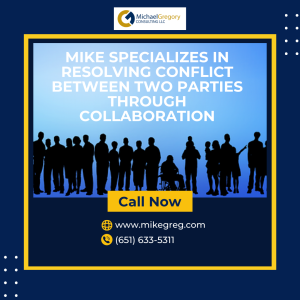Dispute resolution processes help in resolving conflicts, disputes, or claims between parties. This process can make a great alternative compared to going to court. The dispute resolution process can work parallel with potential litigation or litigation processes. Please read on to understand different successful processes for dispute resolution.
When resolving a dispute situation, it may start with negotiation, move further to mediation, and eventually need arbitration or litigation. Most negotiation processes go on smoothly and don’t need to escalate to other levels. In other circumstances, both parties may move to one of the other levels right away.
However, negotiation is the most affordable and the least time-consuming approach to dispute resolution. It won’t escalate to one of the other levels. If you want to know what may work for you at any given time, you should understand your objective very well.
What is your main objective?
First of all, you have to define the issue and know what exactly you want. Think about it considering time, money, relationship, confidentiality, environmental impact, and any other interests. What do you want to have to happen? Do you want to collaborate and work together? Would it help you or the other party if either of you knew more about the concerns of the other party?
Typically, mediation is a faster and far more affordable dispute resolution process than arbitration or litigation and it is confidential. It involves both parties to determine the final results. If you believe it may work for you, you should consider it seriously. On the other hand, if both parties disagree legally and want someone to make a final determination, then arbitration or litigation may work for you.
In some situations, parties consider mediation simultaneously with arbitration or litigation in the hope that differences can be addressed in the mediation. If it is not, the arbitration or litigation is a fallback position. It’s necessary to listen carefully to experts and attorneys connected to the dispute to consider the alternatives that work for you considering the economic and social impacts. This process can often help the parties to evaluate the impacts to make a decision that works for both parties. You may start off the dispute resolution with mediation which is considered to be less costly and safe. The process can be non-binding or can be made binding by using a legal document. The process allows both parties to share their perspectives on the facts, their feelings, and their personal interests on every issue.
What are the successful processes for dispute resolution?
More often, both parties want to be a part of the decision-making process rather than someone else making the decision for them like the jury, arbitrator, or the trier of fact. It helps to encourage mediation. With mediation, arbitration, or litigation – each one has different constraints to consider.
When multiple parties work on different interests, they tend to favor mediation. If long-term relationships are at issue. Mediation allows both parties to explore short-term and long-term interests.
Communication is key during the dispute resolution process. If the relationship is such that peaceful communication is an issue between parties, and if mediation does not work, then arbitration or litigation may be the better choice.
If it’s unclear that arbitration or litigation is favored, you should give consideration to mediation. It’s a less expensive process and may offer a faster resolution with very little risk. You should work with a professionally skilled mediator with working experience in your area to add real value as an expert.
If the mediation process doesn’t work, at least the parties will have each other and it may help the parties to explore interests and understand better the facts of the case and issues from the perspective of both parties.
Bottom Line –
If you want someone professional to help you with dispute resolution, you should consult with an expert mediator. The mediators should have the experience and expertise to resolve disputes as smoothly as possible.
Author Information –
This article is written by Mike Gregory, an international speaker who helps people in conflict resolution negotiates winning solutions and inspires leaders.










